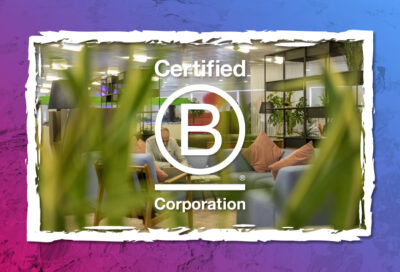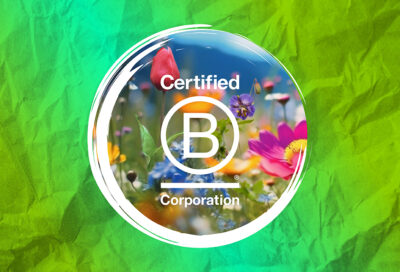UPDATE:
Since this article was written, there’ve been some updates to the information we’ve been able to get our hands on.
Now, companies will need to align with the Corporate Sustainability Reporting Directive by the 1st of January 2025.
The specification for companies that need to comply has changed too. If you’ve got more than 250 employees and a turnover of €40m (£35m) and/or more than €20m (£17m) in assets, the CSRD applies to you. All listed companies need to make sure they’re in line as well.
That’s it from us. Happy reading.
Mandatory sustainability reporting for large companies is to be introduced by the EU under its Corporate Sustainability Reporting Directive (CSRD)
Expected to be in place by 2023 the law will also affect non-EU registered businesses trading across the EU.
Companies with more than 500 employees and a turnover of €150m (£124m) will have to carry out due diligence to prevent human rights and environmental abuses along their full supply chains.
Under the new law, companies could also be held liable for harms committed at home or abroad by their subsidiaries, contractors, and suppliers, and their victims will have the opportunity to file lawsuits before EU courts.
Even before this new legislation was considered we’ve been working with companies to help them carry out sustainability audits.
Sustainability is on everyone’s lips. And rightly so. But as more and more businesses and consumers look to make sustainable choices and improve their impact, you need to be transparent and demonstrate that your business is walking the walk.
It’s not just about the environment, either, but also social and governance transparency. It’s about connecting your business to societal impact and leading in a responsible, regenerative way.
Of course, you’ll need the evidence to prove it. And that’s why more and more businesses are asking us to help them with sustainability reporting and assurance.
WHAT IS SUSTAINABILITY REPORTING?
Sustainability reporting involves the disclosure and communication of a company’s environmental, social and governance (ESG) goals, including the progress it has made towards them.
It demonstrates a commitment to sustainable development which, in turn, can boost internal and external stakeholder confidence and improve your company’s reputation.
Right now, sustainability reporting isn’t straightforward. There are a number of different frameworks that you can follow, each with a different set of stakeholders in mind. So, we’d recommend defining your own framework for the time being by prioritising the metrics that matter most to your stakeholder strategy and long-term purpose.
OUR TOP 5 SUSTAINABILITY REPORTING TIPS
1) SET OUT YOUR STRATEGY
A robust strategy rests on planning, and by repeating these 4 steps, you’ll ensure continuous improvement over time:
- Plan: Establish objectives and draft clear plans
- Do: Implement your plans within a structured management framework
- Check: Measure your actual results against your planned objectives
- Act: Correct and improve your plans to meet and exceed your planned results.
2) DECIDE ON YOUR REPORTING FRAMEWORK(S)
In the beginning, the different frameworks may feel like a maze to navigate, so it will take time and research to understand what works best for you. Some of the most relevant examples include:
- Global Reporting Initiative (GRI)
- Climate Disclosure Standards (CDS)
- Task Force on Climate-Related Financial Disclosures (TCFD)
- International Integrated Reporting (<IR>)
- World Economic Forum (WEF)
3) MAKE SURE YOUR DATA IS RELIABLE
For your reporting to be accurate, your data needs to be accurate too. This will also mean it can be third-party assured.
4) MAKE SURE YOUR REPORTING IS TRANSPARENT
Sustainability is increasingly taken into account in investment decision making, so it’s important to make sure you’re reporting accurately and transparently to your stakeholders.
Also, you’ll want to make sure your metrics are SMART (Specific, Measurable, Achievable, Relevant, Time-Bound).
5) JUST GET STARTED
With emerging themes like social value and impact investing, coupled with concerns for the climate crisis and net-zero targets, sustainability is flying up the board agenda.
The sooner you start your sustainability reporting journey, the sooner you can use the learnings from it to improve your company’s impact.
YOU’VE STARTED. NOW WHAT?
Ask yourself these questions:
- Have you undertaken a gap analysis of current disclosures against the relevant framework requirements? Do you have a plan in place to remedy gaps, if any?
- How comfortable are you with the accuracy and completeness of the underlying data sources used for your metrics? Have you designed and documented the end-to-end processes and controls over the data?
- Have you appropriately defined and considered any material climate-related risks in preparing the financial statements?
- Are the non-financial indicators used reliable and rigorously prepared?
- What assurance do you require to support the disclosures? Is the assurance sufficiently robust and independent?
THE VALUE OF ASSURANCE TO SUPPORT SUSTAINABILITY DISCLOSURES
- Assurance enables organisations to assess the quality of sustainability disclosures and improve and instil market confidence in them.
- As stakeholder capital becomes more and more crucial, sustainability assurance provides a clear message of intent, commitment and confidence. The FCA has set out that they also see significant value in external assurance of listed companies’ TCFD disclosures.
- In a marketplace swamped with unchecked ESG claims and ‘greenwashing’, assurance can provide differentiation, and in the case of sustainable finance, can help with access to broader, economically viable finance options.
HOW CAN COOPER PARRY HELP?
We will work with you to:
- Identify and assess the relevant requirements of all your stakeholders;
- Review your current reporting against best practices, identifying operational improvements and moving beyond compliance to include future-facing analysis and strategy;
- Advise you on current and future ESG reporting standards relevant to your business and sector;
- Benchmark your current disclosures against recognised frameworks (TCFD, GRI, WEF, GHG, AA1000 AccountAbility), spotting any gaps in your disclosures, processes or controls and reporting them privately to management; and
- Deliver assurance over all or selected metrics: private or public ISAE (UK) 3000 assurance.
So, if you’re looking to inject valuable credibility and confidence into your ESG efforts through sustainability reporting and assurance, get in touch.























